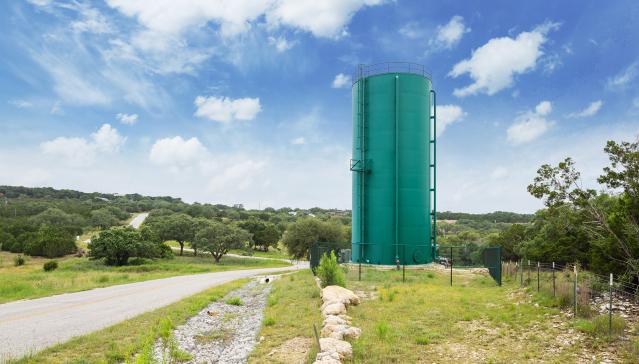Key Terms for Commercial Water Services

Understand the terminology of commercial connections
Qualified Service Applicant
A "qualified service applicant" is an applicant who has:
- Met all of the Utility's requirements of service contained in the Texas Water Co tariff, TCEQ rules, and/or TCEQ order
- Made all payments of required fees
- Provided all necessary easements and rights-of-way necessary to provide service to the requested location, including staking said easements or rights-of-way where necessary
- Delivered an executed Customer Service Inspection certificate to the Utility
- Executed a Customer Service Application for each location to which service is being requested. A copy of the Texas Water Co tariff can be found on the Billing - Rates & Regulations page
Commercial Customer
A Commercial Customer is defined as a business applicant who places unique or non-standard service demands on the system (>5/8” meter). Commercial Customers may be required to provide contributions in aid of construction for the actual costs of any additional facilities required to maintain compliance with the TCEQ minimum design criteria for water production, treatment, pumping, storage, and transmission.
LUE Charge
The Living Unit Equivalents (LUE) charge is part of the fees required to obtain domestic water service. An LUE or Living Unit Equivalent is a planning tool that is a measure of the typical flow of water used or wastewater produced by a single-family residence. One LUE equals 313 gallons per day.
Security Deposit
A Commercial Security Deposit is also due from the Commercial Customer equal to 1/6 of the estimated annual bill or $400. This deposit can be waived with a Letter of Credit from a utility company showing no penalties or late fees for the past 12 months of service.
Line Extension
In some cases, the construction of additional infrastructure may be required to extend service to a particular location. Per the Texas Water Co tariff section 3, the Applicant shall be responsible for all costs associated with the extension of service.
Tap
Tapping is the process of adding a branch line to a previously installed water line.
Tap Fee
The cost of connecting a home or business to the water system. Commercial Customers shall be responsible for the actual costs associated with the tapping of a line and the cost of a meter.
Standby Service
Standby or fire line may be required to provide fire suppression to a structure if deemed necessary by the Comal County Fire Marshal or Fire Code.
Actual Costs Versus Estimated Fees Collected
Actual costs are the costs Texas Water Co actually pays for your line extension, tap, and/or meter. The fees paid upfront are reconciled against the actual costs after the work is performed and a credit or debit is then posted to the account.
Back Flow Prevention Device
All standby service lines and domestic service meters 2” and larger shall have a backflow prevention device installed on the service line as close to the Texas Water Co connection as possible. This protects the water system from unwanted backflow events.
Tariff
The tariff approved by the Texas Commission on Environmental Quality for Texas Water Co sets forth its fees, rates and charges, rules, and policies relating to water service by Texas Water Co. It may be amended from time to time.
TCEQ
The Texas Commission on Environmental Quality.